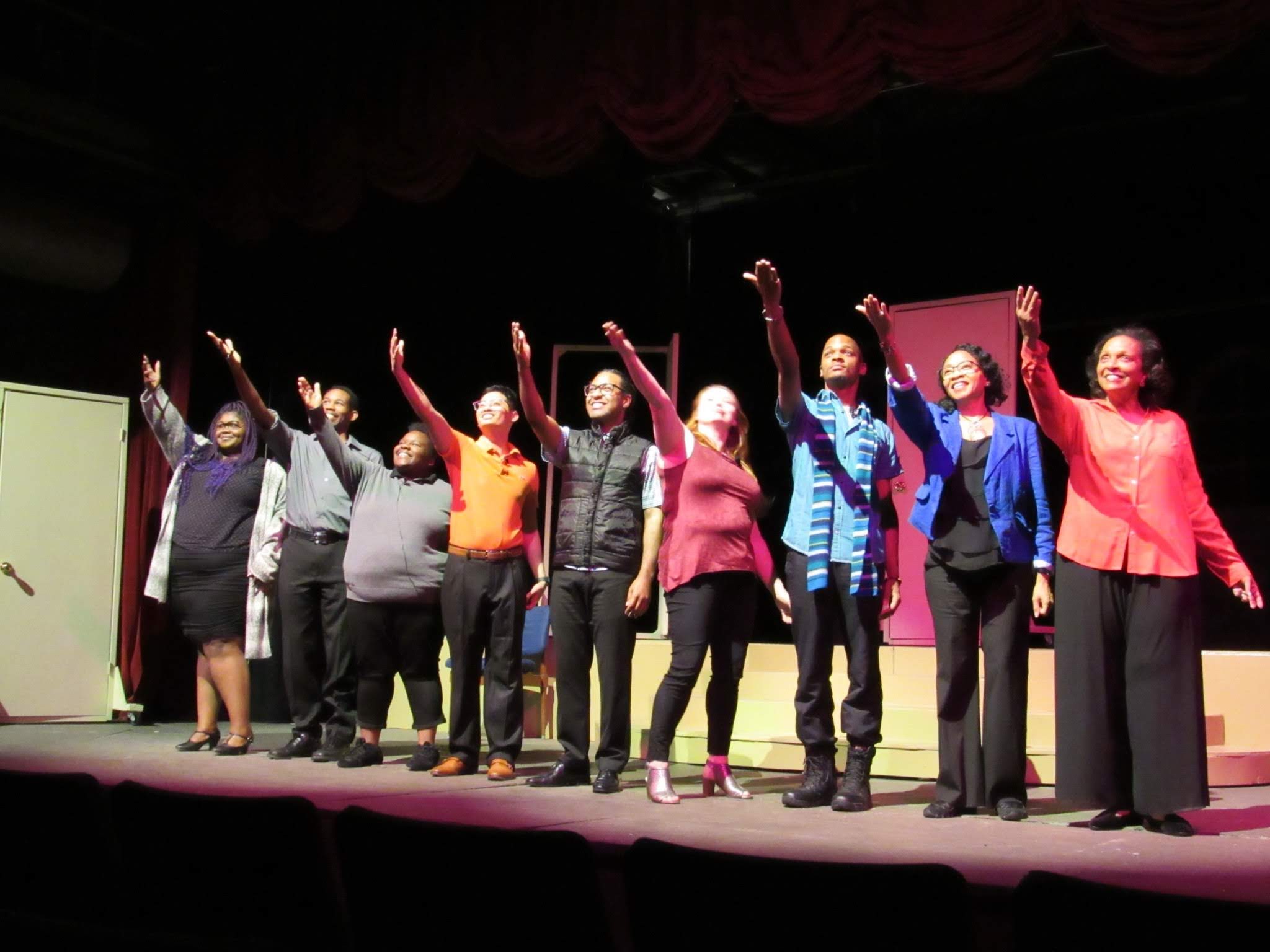
Theatre Department
Theatre Department
The Theater department offers a variety of lecture-, performance- and production-based courses to SWTCC scholars.
Degree and Academic Map Information
Tennessee Transfer Pathway : this program is designed to transfer
Courses Offered
*Prerequisites: ENGL 0810 and READ 0810 or equivalent, ENGL 1010,
- *THEA 1015 Acting I
- THEA 2015 Acting II
- THEA 1025 Stage Craft I
- THEA 2025 Stage Craft II
- *THEA 2660 Introduction to Playwriting
- *THEA 1030 Introduction to Theater
- THEA 1900 Theatre Performance Practicum I
- THEA 1910 Theatre Production Practicum I
- THEA 1040 Fundamentals of Theatrical Design
- THEA 1920 Theatre Performance Practicum II
- THEA 1930 Theatre Production Practicum II
- THEA 1940 Theatre Performance Practicum III
- THEA 1950 Theatre Production Practicum III
- COMM 1620 Voice and Articulation
- COMM 2610 Basic Oral Interpretation
- COMM 2620 Intermediate Oral Interpretation
Program Information
SWTCC Theatre courses provide a study of the performance and production arts. Courses are designed to teach awareness, construction, and communication by examining and creating in a variety of styles from various time periods and cultures. Scholars have the opportunity to utilize innovative programs and technology, communicate what is most relevant in their lives, and learn how to navigate and work in the entertainment and hospitality scene in Memphis and beyond.
Some lecture and performance courses incorporate International Curriculum and Global Cultural Awareness via Study Aboard. In the past, theatre courses have traveled to Greece, Rome, England, Ireland and more. For more info, check out our International Studies page: https://www.southwest.tn.edu/international-studies/index.php
*A high-impact practice (HIP) is a pedagogical approach which requires an investment of time and energy over an extended period that has unusually positive effects on student engagement in educationally purposeful behavior (Kuh, 2010). High impact practices are evidence-based teaching and learning practices that have been widely tested and shown to be beneficial for college students (Kuh, 2008). Characteristics of high-impact activities include: setting appropriately high expectations of students; interaction with faculty and peers about substantive matters; experiences with diversity; frequent feedback; reflection and integrative learning; real-world applications; and demonstrated competence.
HIPs Offered (Videos: outline the meaning and relevance of each HIP): Global Cultural Awareness, Study Abroad, Technology Enhanced Learning
Creative Roles
- Actor/Performer: $30,000–$60,000 annually, depending on experience and location.
- Voice-Over Artist: Average $80/hour
- Teaching Artist/Drama Teacher: $40,000–$55,000 annually, often through schools or non-profits
- Choreographer/Assistant: $35,000–$55,000 annually; common in theater, film, and events.
- Musician/Accompanist for Performances: $40,000–$60,000 or freelance at $50–$100/hour.
- Cabaret Artist: $25,000–$50,000 annually, often combining performance with event work.
Technical and Production Roles
- Lighting or Sound Technician: $40,000–$65,000 annually; includes freelance opportunities.
- Costume Designer/Assistant: $35,000–$50,000 annually.
- Scenic Carpenter or Prop Maker: $30,000–$55,000 annually, dependent on project.
- Projection/Media Designer: $40,000–$60,000 annually; increasingly in demand in modern productions.
- Automation Technician: $45,000–$70,000 annually; specialized in mechanized stage elements.
- Wigs, Hair, and Makeup Artist: $35,000–$50,000 annually or freelance.
Administrative & Related Roles
- Marketing or Social Media Coordinator for arts organizations: $40,000–$55,000 annually.
- Stage Manager: $40,000–$60,000 annually; experience significantly impacts pay.
- Development or Fundraising Officer: $50,000–$70,000 annually in arts-focused roles.
- Theatre Marketing Manager: $50,000–$70,000 annually; managing audience outreach.
- Box Office Manager: $40,000–$55,000 annually; oversees ticketing operations.
- Casting Assistant: $35,000–$50,000 annually, a stepping stone to casting director roles.
When choosing a career, It's important to know yourself, learn about options, and
develop a plan to reach your goals. Whether you're trying to decide on a major, unclear
about career options, or want to make a career change, Career Services can help.
https://www.southwest.tn.edu/career-services/career-planning.php
https://www.southwest.tn.edu/register.php
Contact Us
- Union Avenue Campus
- Theatre Building
- Vertie Sails - RM 113
- Thomas King, Artistic Director, Program Coordinator
- 901-333-5179
- tking19@southwest.tn.edu
- A Building, Room 220E
- Cathy Levine, Administrative Assistant
- 901-333-5346
- cfarr@southwest.tn.edu
- A Building, Room 220
- Patsy Fancher, Chair
- 901-333-4151
- pfancher@southwest.tn.edu
- Macon Cove Campus - MAB 271C



